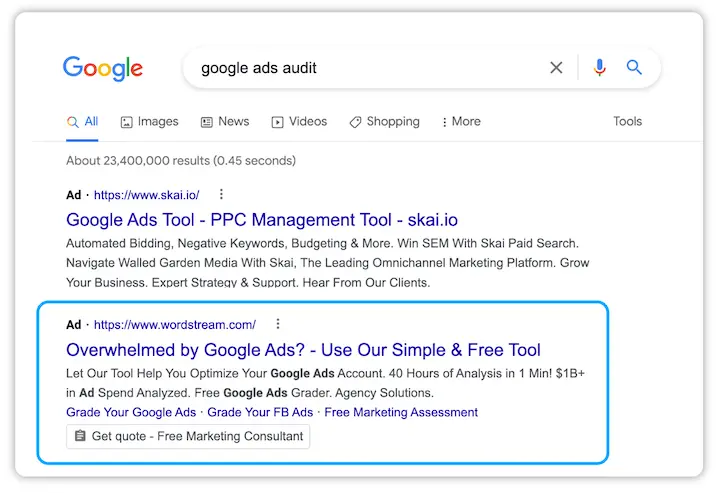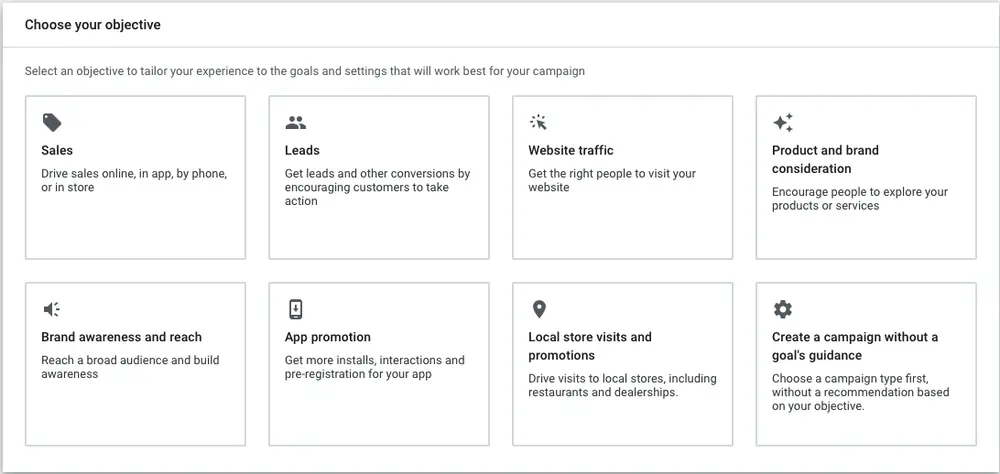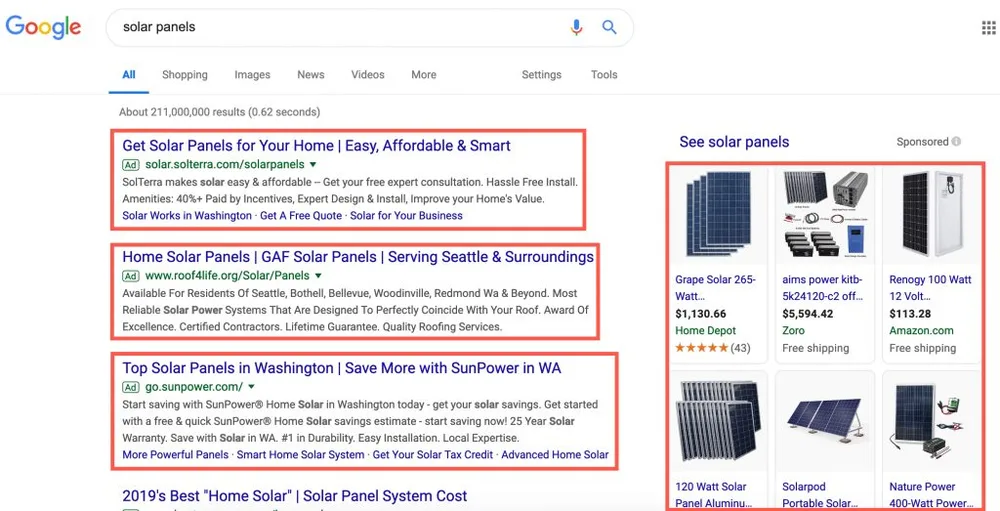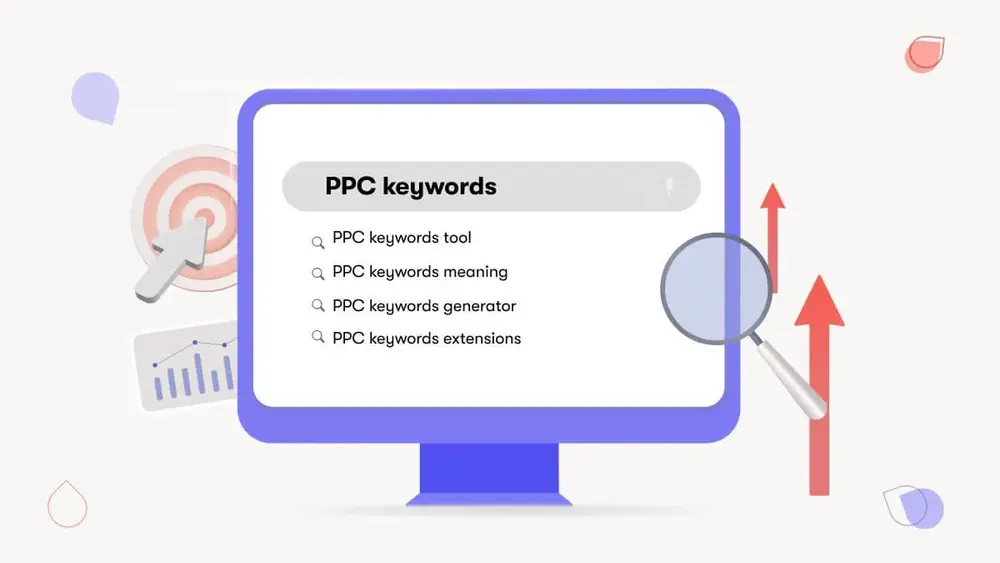You might hear a little about PPC or Pay-Per-Click if you work in marketing, especially digital marketing.
However, if you are new to PPC marketing or already know but are not sure where to start, this article might get you to the right place.
What Is Pay-Per-Click?
Pay-per-click or PPC is a digital marketing model in which advertisers will pay Google or any platform offering pay-per-click services a small fee each time 1 of those ads is clicked. Literally, you are paying the search engines to receive targeted clicks to your site, landing page, or application. If you optimize PPC correctly, the fee will be insignificant since it’s worth more than the payment you make for it.
For instance, a $1 click might bring you a $1000 sale, which means the profit has become 1000%.
PPc will appear in different formats (text, videos, images, or combined) and be displayed on search engines (SEs), sites, social media channels, etc.
For example, if you search for the term “Google Ads audit”, you will see some sites showing up with the tags “Ad” or “Sponsored”. Yes, that is a PPC ad.

Paid search, search engine advertising, or search engine marketing is the most popular type of PPC.
How Does PPC Work?
You may see that PPC might look different on different platforms but the process will be as follow steps:
- Select your ad campaign type based on your purpose and objective.
- Customize your targeting settings: audience, location, device, and more.
- Fill in your budget and bidding strategies.
- Provide your planned URL (site, landing page, etc.).
- Customize your ad.
The location, timing, and cost of a click on your PPC advertisement are all decided algorithmically once it goes live. These factors include your bid, budget, campaign settings, relevance, and quality.

Remember that PPC platforms reward effective ad campaigns with better placements and lower costs. To maximize your PPC profits, mastering these techniques is necessary.
How Does PPC Work With Google Ads?

PPC ads work on many platforms from search engines to social media. Guess the most popular place for PPC ads? Google, of course!
As has been said above, the process will also apply to Google Ads.
1. Targeting the Right Audience: You will start by researching your target audience – the people you want your ads to reach. This includes factors such as internet behavior, customer interests, and demographics.
2. Keyword or Phrase Listing: You choose keywords or phrases that potential customers might use to search for products or services in your field. Google Ads will show your ads when users enter these keywords in their searches.
3. Bidding on Keywords: Google Ads operates like an auction. You set the maximum amount you pay each time someone clicks on your ad for a particular search term.
4. Quality Score Matters: Google doesn’t just consider your bid amount. They also consider the quality of your ad and its relevance to the keywords. A well-written, relevant ad with a strong landing page gets a higher “Quality Score” which can lead to lower costs and better ad placement.
5. The Auction and Ad Ranking: When a user searches for a term/keyword, Google will consider all the ads competing for that term/keyword. It factors your bid, quality score, and other elements to determine the ad rankings. The higher the rank, the more prominent your ad position on the search results page.
6. You Only Pay When Clicked: The advantage of this ad format is that you only get charged when someone clicks on your ad. This allows you to focus your budget on attracting qualified leads.
Determine The Effectiveness of Your Pay-Per-Click Keyword Research

There are many ways to set up a Pay-per-click advertisement but you must focus on keywords & ad match types. To succeed, you can do the following list:
- Focus on your landing page quality: Optimize your page with relevant content, sitemap, keywords, and CTA buttons for specific search terms.
- Eye-catching impression: Gathering impressions is important for running a search engine or social media ad. They might not catch the first impression but gradually, people will get curious about your ads and click on them.
- Improve the Quality score: Having a high Quality Score in Google Ads is key to success. It signifies to Google that your ads and landing pages are relevant and valuable to searchers. This translates to more ad clicks for less money, giving you a better return on your advertising investment.
fConclusion
If you are new to PPC, you might feel complicated and overwhelmed since there are a lot of things to do. However, feel free to take your time and discover.
In case you wanna find a Google Ads account, you can always choose our Rent Google Ads Account service.
